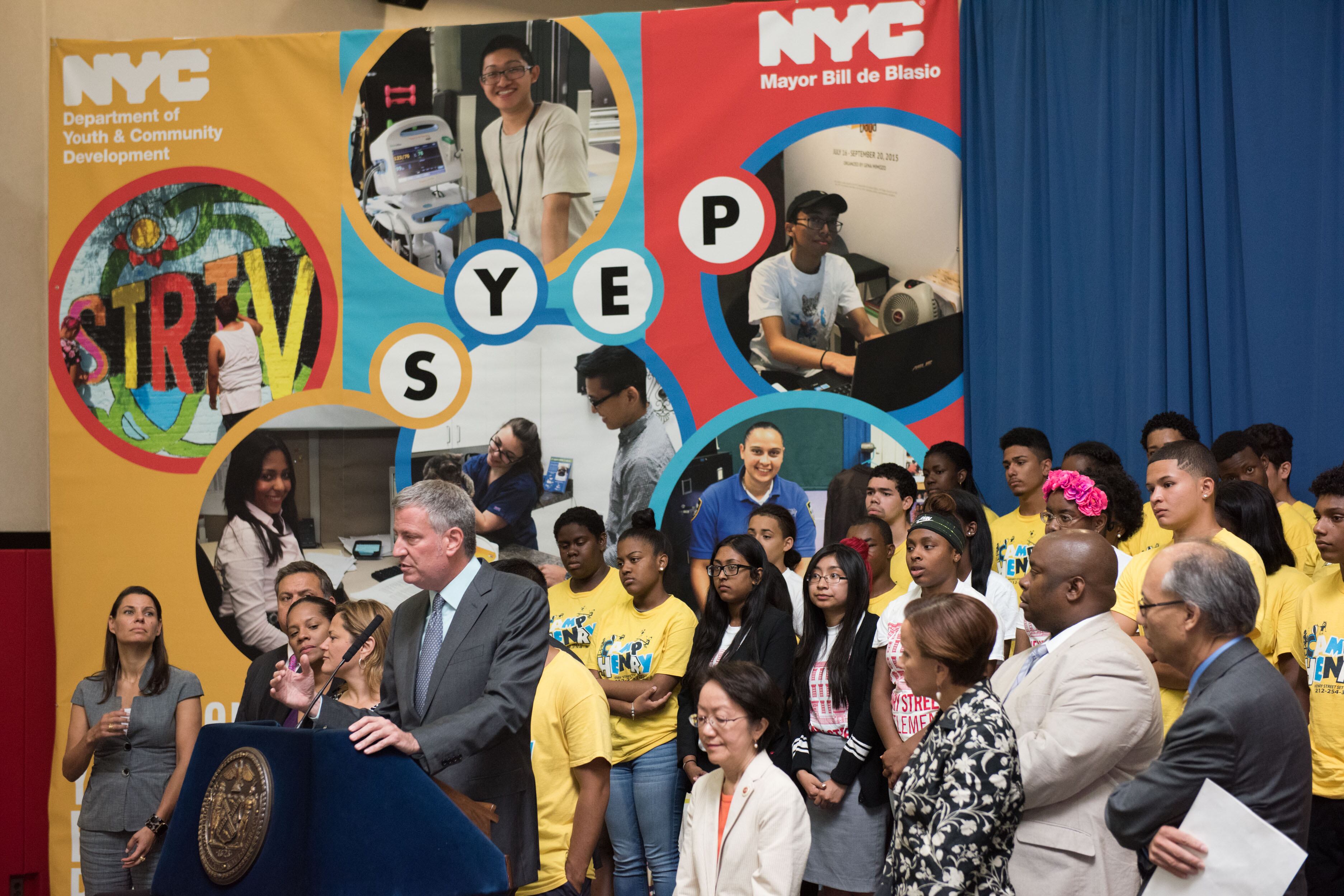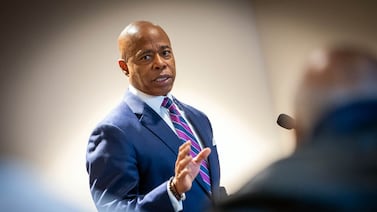Following months of uncertainty, thousands of New York City youth could begin applying this week for the city’s Summer Youth Employment program. But teenagers and young adults will be signing up for a program that looks nothing like it has in recent years — all virtual, with fewer than half of the typical slots.
At the same time, providers — who said they’re excited about the program’s revival — are racing to finalize plans and hire scores of people ahead of the July 27 start date for a program that city officials approved at the last minute while negotiating a final budget deal.
“Literally, we’re doing what we do from January to June,” said Tatiana Arguello, director of workforce development at United Activities Unlimited in Staten Island, which this year will offer job placements to 2,000 young people. “We have three weeks to do it, and it’s literally just night and day trying to think of everything.”
This summer, there is space for 35,000 program participants, who will have 60-90 hours of total programming and earn stipends ranging from $700-$1,000 over five weeks. Last year, some 74,500 young people were employed through the program, some earning stipends but most earning minimum wage in their placements.
In April, as the coronavirus ravaged New York City, Mayor Bill de Blasio initially axed the jobs program over concerns that youth couldn’t show up for in-person work. He later acknowledged that budget concerns also fueled that decision as the city faces a $9 billion revenue shortfall due to the economic fallout from the pandemic.
After intense public advocacy, city officials inked a last-minute budget deal that created an alternate program centered on career exploration and project-based learning opportunities offered virtually by hundreds of nonprofit providers, who typically train youth, forge partnerships with industries, and pair participants with summer jobs. This summer’s offerings will include opportunities for participants to solve real-world problems for local businesses, attend panels with leaders in different professions, and be trained in work readiness, such as interviewing skills or resume writing.
The program will cost $51 million to run, down from about $164 million last year. This year about $23 million is expected from the state; $23 million from the city; and $6.7 million from private donations, according to city officials. State money could be at risk since Gov. Andrew Cuomo’s administration is requiring such jobs programs to offer mostly traditional work, but a City Hall spokesperson said they are still in discussion with the state.
As of Friday morning, 47,000 applications had been filed, according to Mark Zustovich, a spokesperson for the Department of Youth and Community Development, or DYCD, which oversees the summer jobs program. Some people reported glitches while applying online, which included the website ceasing to operate for several minutes Thursday morning due to “increased traffic on the site,” Zustovich said.
Slots — filled either through a lottery or recruitment — will be prioritized for students from low-income families, those in foster care, involved with the criminal justice system, who have runaway, are homeless, are residents of public housing, or come from “communities hit hardest by the pandemic,” according to a news release about the program. Zustovich said specific slot allocations have not been finalized.
Youth who submitted applications before the program’s cancellation can go online to indicate they’re still interested, Zustovich said. Some of those students may have now found other opportunities as youth and providers waited for months on any news about the program.
LaToya Beecham, a rising junior in the Bronx, had submitted an application before the pandemic. As a member of advocacy group Teens Take Charge, she had pushed the city to reinstate the program. But Beecham has since been offered an internship with a community organization and won’t re-submit her application. She said she needs the income and experience the youth employment program offers, but given the smaller of slots available, “I don’t want to feel like I’m taking away a job from someone who needs it more than me.”
The program’s last-minute revival means the program’s planning process is condensed in every way. Students have less than a week to submit applications, closing on July 15. And with limited space, slots could fill up fast. Queens Community House, for example, had received 489 inquiries as of Thursday afternoon, said Ivonne Torres, the organization’s associate executive director of young adult services. But this year the program is expected to have about 500 slots, down from about 1,200 the year before.
On Thursday Beecham spread the word on Snapchat that applications were open and received about 90 responses, she said.
But some providers and youth worry that the smaller program could leave thousands of students behind at a time when more of them could use extra cash and job skills, given the state of the economy.
“I think young people in New York City have just been through so much in the past few months, that you could argue that everybody who’s applying for SYEP is in higher need of the program than in previous years,” said Nora Moran, policy and advocacy director for United Neighborhood Houses, which represents many providers that support summer programs for youth. “There’s just not enough programming to serve those populations.”
Like many other providers, Arguello’s organization had been preparing however it could for months in hopes the city would fund the storied program, which was established in 1963. They’re still locking down partner businesses and organizations, but they’re developing various program models for applicants. One program, for example, would teach youth about the Census count, then may hold a “day of action,” when youth will brainstorm ways to encourage more people to fill out the Census survey.
But staffing these program models on such short notice will likely be the biggest challenge. Many organizations reported laying off and furloughing trusted staff or halting any hiring for seasonal roles as budget dollars became uncertain.
Arguello’s team is racing to hire 100 temporary employees who can oversee the virtual programs, a process they started back in January but halted with the cancellation. They’ve decided on 30 people so far, and her team held 70 interviews over two days this week. Finding enough qualified candidates, who typically have a bachelor’s degree and have a background in a community organization or education, will be hard, she said.
“It’s gonna be like working magic to try to make sure we have qualified, amazing, compassionate instructors who understand the needs of our youth this summer,” she said.
Torres added: “Obviously the biggest challenge is finding the staff you had already hired, who then started looking for other opportunities.”
Still, the planning timeline “is in much better shape” than the city’s subsidized day camps, said Michelle Neugebauer, executive director of Cypress Hills Local Development Corporation. Camps also faced closure until the city restored about 80,000 spots in its final budget. Day camps are scrambling to rehire staff and restart programs that must be up and running by July 13.
At Cypress Hills, expected to have 230 slots for summer youth employment, staff had also pre-planned various programs based on what youth are interested in. One program will train and task youth with setting up websites and social media presences for local businesses — 15 such merchants have signed on so far, Neugebauer said. Another group will be trained to become peer counselors.
“We can make this work,” she said.
Youth who need technical help with their applications can call 1-800-246-4646 or 646-343-6800, Zustovich said.








